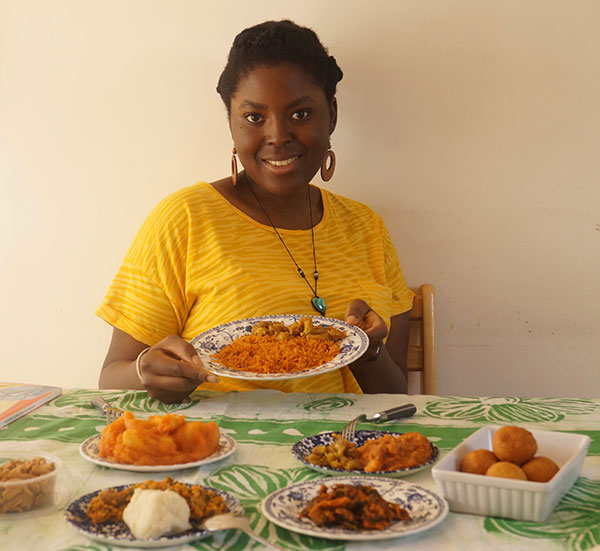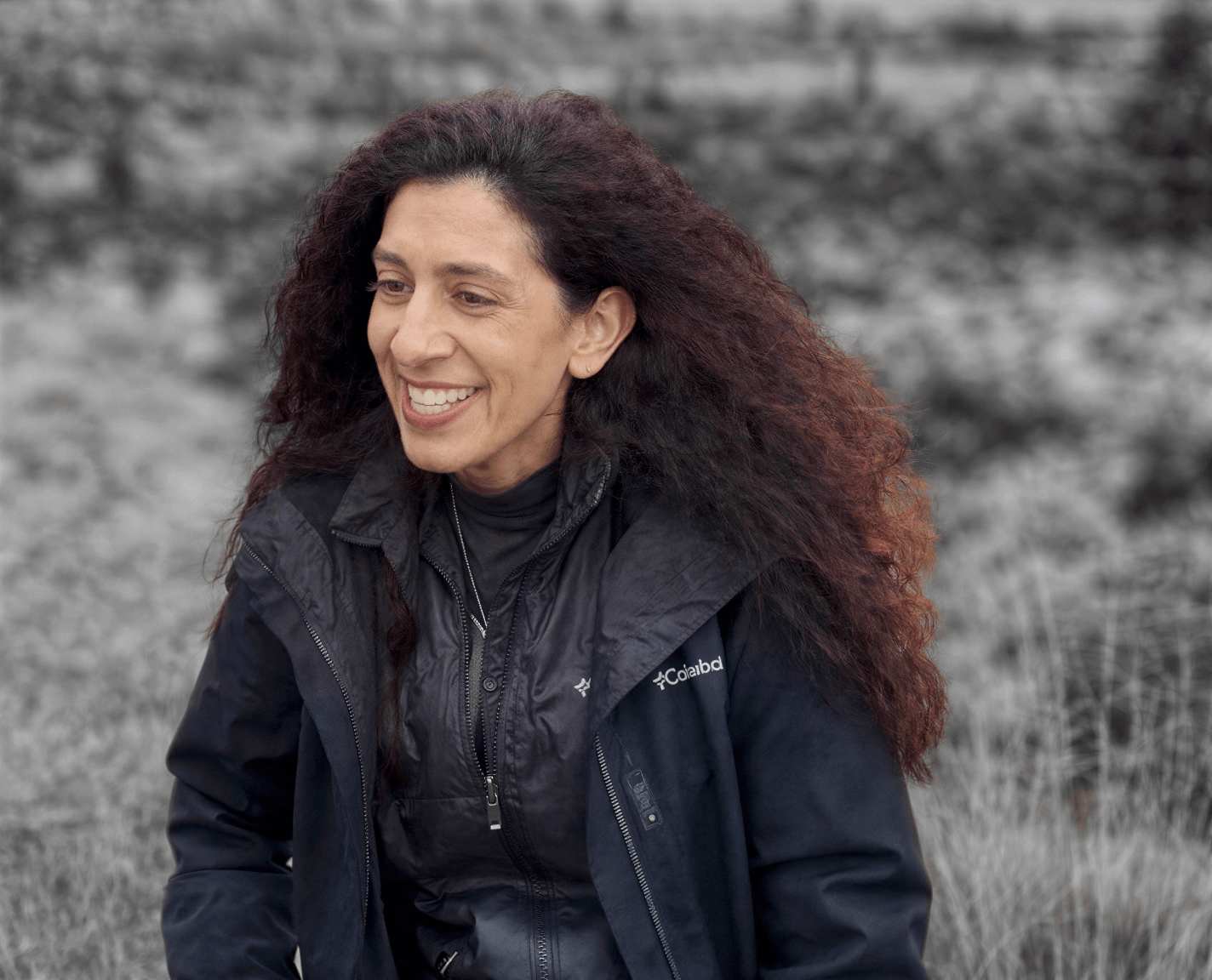Prejudiced rejection in the workplace is, sadly, still an everyday occurrence for people of colour. But for Tomi Makanjuola, nothing could have prepared her for the gut punch of stepping into a publisher’s office five years ago and being told “you just have to be realistic. You’re not a Nigella Lawson and you’re not a Jamie Oliver. Those are the cookbooks that sell.”
The 28-year-old vegan chef and blogger was looking to publish her plant-based Nigerian recipes and was repeatedly told there wasn’t a market for her cuisine, even though there are over 200 million Nigerians worldwide, and leaving aside the assumption that it is only Nigerian people who would be interested. One publisher even claimed the food from the most populous country in Africa was too niche. The perversity of this position, with its racist undertones, would have crushed many, but Makanjuola did what many black people have to do in this situation and carried on fighting.
“When you walk into a bookshop and you look at the cookbook shelves, the majority of them are by white cooks and white chefs,” she says. “You don’t see a lot of Nigerian cookbooks on the shelves, you don’t see a lot of Nigerian chefs on TV doing cooking shows. So, could we be given more opportunity? For sure.
“Around this time, I started to dabble in self-publishing because I write fiction as well,” she adds. “So I had been self-publishing a few fictional books here and there. I decided just to do it myself. I did the photography myself, did the recipe testing, got friends and family to try out some of the recipes, I put it together and I self-published it. It felt very empowering to do so.”

The resulting Plantain Cookbook, which contains around 40 recipes, is designed to give amateur cooks the chance to try Nigerian food in a plant-based format, without sacrificing any flavour.
It also celebrates plantain as a versatile ingredient in a vegan diet, where it can be cooked when green (soups, stews or chips) or even when jet black (as an egg-like replacement in baking and pancakes). Native to tropical regions, plantain is high in vitamins C and A, as well as potassium and with high amounts of fibre. As such, Makanjuola’s recipes tap into the wider trend for plant-based eating, where much of the discussion is about how to ensure a healthy, balanced diet, without animal protein.
By adapting traditional dishes to vegan, the book also highlights that almost every meal in Nigerian cooking uses meat ingredients, even the rice dishes.

And it was because of this cultural issue that Makanjuola found members of her own community resistant to her vegan lifestyle (she went plant-based in her early 20s) and cooking.
“The idea of going vegan, within our culture, is seen as strange,” she says. “I even had an uncle who asked me outright whether I had joined a cult and was that why I was vegan.
“At first my mother felt that something was missing in the dishes. And she would express that sometimes in a jokey way. My brother as well, he would do the same. He’d be like, ‘oh this needs a bit of chicken’, you know, comments like that. But now it’s been eight years and they’re used to me being a vegan now, and I actually get requests to cook.”

The requests to show off her vegan dishes haven’t just come from her family and Makanjuola now regularly holds workshops, Airbnb experiences, and dishes out ethical advice and tips on where to source Nigerian ingredients from her blog and on Instagram as The Vegan Nigerian. Recently the workshops, where she teaches people how to cook her dishes, have moved online due to coronavirus, but despite not being advertised they have still been very popular, she says.
Covid has meant that Makanjuola has had to adapt her life in other ways, too. She moved back to her family home in Rochester from London and spent lockdown quarantining with relatives. When her family moved from Lagos to Kent, when Makanjuola was a teenager, the culture shock of suddenly moving to a regional British town, with its Norman castle and Dickensian links, meant they had to quickly adapt to their surroundings, so much so that they would travel by train to London to buy Nigerian ingredients. It also meant that, for the first time in her life, she had to experience life as part of a minority group.
“Settling into life here was certainly quite an interesting experience,” she says. “Going to school, I was one of only two black people in my entire year. That was a huge shift.
“I feel [racism] here sometimes can come in the form of microaggressions. It can come in the form of slight remarks that in the moment you don’t pick up on, and then when you think about it later, you think, hang on a second, that was kind of strange.”

She talks about how the Black Lives Matter (BLM) movement has affected her profoundly, and why she is wary of companies and individuals virtue signalling: “There’s a level of scepticism when we see people rallying around this movement, especially on social media,” she says. “When you had companies, organisations and individuals posting their support of BLM – it was great to see – and I’m never going to discount that allyship but it needs to go a lot deeper than a Facebook or Instagram post. It needs to be something that is talked about and it needs to be an area where people are willing to constantly educate themselves.”
Makanjuola’s words mirror the frustration many people of colour feel about how the most pressing anti-racism demands get ignored, such as the challenge of dealing with white dominance at board level, because the solutions involve uncomfortable questions being asked. She sums it up succinctly by stating: “We just need more representation in spaces where decisions are being made. But when we’re not represented in spaces or in rooms then it’s a real struggle uphill.”
With so few people of colour working in publishing, it’s not surprising that the gatekeepers favour cookbooks that reflect their backgrounds, even though such books don’t represent all readers’ lives.
And while growing awareness prompted by movements like Black Lives Matter might result in positive change, until then, Makanjuola is an inspiration for what happens when you don’t take no for an answer.










a bit late in getting to this copy of Wicked Leeks but better late than never – book now ordered from Amazon! Oh yes! I first came across plantains whilst shipping bananas from the Caribbean to Europe [yes the proverbial banana boats – good fun] and came to like them – since then I’ve not seen much of them – a whole new vista opens up before me . . . . . . if I can but find a source of plantain down yer in Devon! Thank you Tomi!
I feel Tomi should be congratulated on this bold step forward. Bucking a trend in this way is great.
Well done, keep up the good wark.